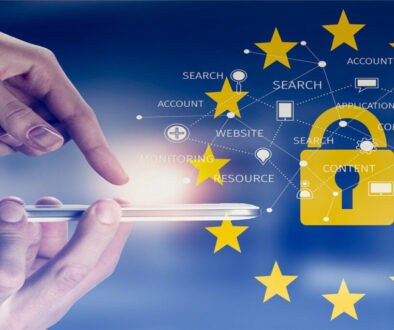Taking Control of Your Data: A Consumer’s Guide to Data Protection
Data protection is a critical concern for consumers in today’s digital age. With the increasing reliance on technology and the vast amount of personal data being collected and shared, it is essential for individuals to have control over their own information. This guide will provide consumers with valuable information on data protection, including an overview of its importance, potential risks and vulnerabilities, understanding of data protection laws, managing personal data, securing data storage and transfer, protecting online presence, and the future of data protection. By following these guidelines, individuals can take control of their data and ensure its protection.
Overview of data protection and its importance
Data protection is crucial for individuals in today’s digital age, where personal data is constantly being collected, shared, and stored. It ensures that individuals have control over their information and safeguards against unauthorized access and misuse. Data protection is important for several reasons:
- Privacy: It protects individuals’ right to privacy by allowing them to determine how their personal data is collected and used.
- Security: It helps prevent data breaches and cyber attacks, keeping personal information secure.
- Trust: Data protection builds trust between individuals and organizations, fostering a secure and transparent relationship.
- Compliance: It ensures that organizations comply with data protection laws, protecting individuals and their personal data.
By prioritizing data protection, individuals can safeguard their information, maintain control over their privacy, and foster trust in the digital ecosystem.
The potential risks and vulnerabilities of personal data
Personal data is constantly at risk of being exposed to various threats and vulnerabilities. Hackers and cybercriminals often target personal information for financial gain or malicious intent. The potential risks and vulnerabilities of personal data include:
- Data breaches: Unauthorized access to databases can lead to the theft or exposure of personal information.
- Identity theft: Stolen personal data can be used to impersonate individuals, leading to financial loss and reputational damage.
- Phishing attacks: Cybercriminals use deceptive tactics to trick individuals into revealing sensitive data, such as passwords or credit card information.
- Malware and ransomware: Malicious software can infect devices and encrypt data, demanding a ransom for its release.
- Social engineering: Manipulating individuals into revealing personal data through techniques like pretexting or baiting.
It is essential for individuals to be aware of these risks and take necessary precautions to protect their personal data.
Understanding Data Protection Laws
Data protection laws are regulations put in place to safeguard the personal data of individuals. These laws govern how organizations and businesses collect, store, process, and transfer personal information. They are designed to ensure that individuals have control over their personal data and that it is used appropriately and securely. Understanding data protection laws is crucial for consumers to be aware of their rights and to hold organizations accountable for the proper handling of personal data. It is important to familiarize oneself with key terms and concepts related to data protection, such as consent, data minimization, and the right to be forgotten.
Overview of data protection laws and regulations
Data protection laws and regulations serve as a framework to protect individuals’ personal data. These laws vary across different countries and regions, but they share common goals of ensuring the privacy and security of personal information. Examples of data protection laws include the General Data Protection Regulation (GDPR) in the European Union, the California Consumer Privacy Act (CCPA) in the United States, and the Personal Information Protection and Electronic Documents Act (PIPEDA) in Canada. These laws outline the rights of individuals, such as the right to access and correct their data, as well as the obligations of organizations in handling and safeguarding personal information. By adhering to these laws, organizations can build trust with consumers and establish a strong culture of data protection.
Key terms and concepts related to data protection
In the realm of data protection, there are several key terms and concepts that consumers should be familiar with. These include:
- Personal Data: Information that can identify an individual, such as their name, address, and social security number.
- Consent: The voluntary and informed agreement given by an individual for the processing of their personal data.
- Data Controller: The entity that determines the purposes and means of processing personal data.
- Data Processor: An entity that processes personal data on behalf of the data controller.
- Data Breach: Unauthorized access, loss, or disclosure of personal data.
- Privacy Policy: A document that outlines how an organization collects, uses, and protects personal data.
- Data Minimization: The practice of limiting the collection and storage of personal data to only what is necessary for a specific purpose.
- Data Subject: The individual to whom personal data relates.
By understanding these terms and concepts, consumers can better navigate the landscape of data protection and make informed decisions about their personal information.
Managing Your Personal Data
In order to take control of their personal data, consumers can follow several tips for managing how their information is used. These include:
- Review privacy settings: Regularly check and update privacy settings on social media platforms and other online accounts to ensure that personal information is only visible to intended audiences.
- Be cautious with sharing information: Be mindful of what personal information is shared online and only provide it to trusted sources.
- Opt out of data collection: Take advantage of options to opt out of data collection and targeted advertising on websites and apps.
- Regularly review and delete data: Periodically review stored data and delete any unnecessary information to minimize the amount of personal data retained.
- Educate oneself: Stay informed about data protection practices and legislation to make informed decisions about personal data privacy.
By following these tips, consumers can assert more control over the use and storage of their personal data.
Tips for controlling the use of personal data
- Review privacy settings: Regularly check and update privacy settings on social media platforms and other online accounts to ensure that personal information is only visible to intended audiences.
- Be cautious with sharing information: Be mindful of what personal information is shared online and only provide it to trusted sources.
- Opt out of data collection: Take advantage of options to opt out of data collection and targeted advertising on websites and apps.
- Regularly review and delete data: Periodically review stored data and delete any unnecessary information to minimize the amount of personal data retained.
- Educate oneself: Stay informed about data protection practices and legislation to make informed decisions about personal data privacy.
By following these tips, consumers can assert more control over the use and storage of their personal data.
Data privacy rights and how to exercise them
Consumers have certain rights when it comes to the protection of their personal data. These rights empower individuals to have control over their personal information and how it is used. Some common data privacy rights include the right to access and review personal data, the right to request correction or deletion of inaccurate information, as well as the right to object to the use of personal data for certain purposes. To exercise these rights, individuals can contact the organizations or platforms that hold their data and submit a request. It is important to familiarize oneself with the applicable data protection laws and regulations to understand these rights fully.
Secure Data Storage and Transfer
When it comes to secure data storage, it is crucial to use reliable and encrypted storage options. Cloud storage services with strong security measures and data encryption ensure that your personal information is protected from unauthorized access. It is also important to regularly update and maintain security patches for your devices and storage systems. When transferring data, using encrypted channels such as secure file transfer protocols (SFTP) or virtual private networks (VPNs) provides an extra layer of security. By implementing these best practices, individuals can safeguard their personal data during storage and transfer processes.
Best practices for secure data storage
Regularly backup your data to ensure you have a copy in case of any data loss or system failure. Use reliable and encrypted storage options, such as cloud storage services, to protect your data from unauthorized access. Implement strong passwords and consider two-factor authentication for added security. Keep your devices and storage systems updated with the latest security patches. Limit access to sensitive data by using access controls and permissions. Finally, consider encrypting your data to provide an extra layer of protection. By following these best practices, you can enhance the security of your stored data.
Ensuring data security during transfer
When transferring data, it is crucial to ensure its security to prevent unauthorized access or interception. Here are some best practices to follow:
- Use secure protocols: Transfer data using secure protocols such as HTTPS or SFTP, which encrypt data during transmission.
- Employ encryption techniques: Encrypt sensitive data before transferring it to add an extra layer of protection. This ensures that even if the data is intercepted, it remains unreadable to unauthorized individuals.
- Verify recipient identity: Before transferring data, ensure that the recipient is the intended party by using secure authentication methods or exchanging encryption keys.
- Monitor and track transfers: Keep a record of data transfers and monitor for any suspicious activity or unauthorized access.
By following these practices, you can ensure the security of your data during transfer and minimize the risk of data breaches.
Protecting Your Online Presence
In today’s digital age, it is crucial to protect your online presence to safeguard your personal information. Here are some essential tips to follow:
- Use strong and unique passwords for all your online accounts.
- Enable two-factor authentication whenever possible.
- Be cautious while sharing personal information on social media platforms.
- Regularly update your privacy settings on social media and other online services.
- Avoid clicking on suspicious links or downloading files from unknown sources.
- Install reliable antivirus and anti-malware software on your devices.
- Regularly monitor your online accounts for any unusual activity.
By implementing these measures, you can minimize the risk of identity theft, data breaches, and other online threats.
Tips for safeguarding personal information online
To protect personal information online, users should follow these crucial tips. Firstly, create strong and unique passwords for every online account and enable two-factor authentication whenever possible. Secondly, exercise caution when sharing personal information on social media platforms and regularly update privacy settings. Additionally, it is important to avoid clicking on suspicious links or downloading files from unknown sources. Installing reliable antivirus and anti-malware software on devices is also recommended. Lastly, regularly monitor online accounts for any unusual activity to detect and respond to potential security breaches.
Protecting yourself from data breaches and cyber attacks
In order to protect yourself from data breaches and cyber attacks, it is important to follow some key practices. Firstly, be cautious when sharing personal information online and only provide it on secure websites. Secondly, regularly update and strengthen your passwords for all online accounts. Thirdly, be aware of phishing emails and avoid clicking on suspicious links or downloading attachments from unknown sources. Additionally, keep your devices and software updated with the latest security patches. Lastly, consider using a reliable antivirus and firewall software to further enhance your online security. By taking these precautions, you can minimize the risk of falling victim to data breaches and cyber attacks.
The Future of Data Protection
As technology continues to evolve, the future of data protection is poised for significant advancements. Emerging technologies such as artificial intelligence and blockchain have the potential to enhance data security and privacy. AI-powered algorithms can strengthen data encryption and identify suspicious activities in real-time. Blockchain technology offers a decentralized and transparent approach to data storage, making it difficult for hackers to compromise information. Additionally, as consumers become more aware of their data rights, their demand for stronger privacy protections will shape data protection policies and encourage businesses to prioritize data security. The future holds promising possibilities for data protection that prioritize the security and privacy of personal information.
Emerging technologies and their impact on data protection
Emerging technologies such as artificial intelligence (AI) and blockchain are revolutionizing data protection. With AI-powered algorithms, data encryption becomes stronger and more sophisticated, enabling real-time detection and prevention of suspicious activities. Blockchain technology offers a decentralized and tamper-resistant approach to data storage, making it difficult for hackers to compromise information. Both AI and blockchain provide enhanced data security and privacy measures, ensuring that personal information remains secure. As these technologies continue to advance, they will play a crucial role in shaping the future of data protection.
The role of consumers in shaping data protection policies
Consumers play a vital role in shaping data protection policies. Their demands for transparency and control over personal data influence legislation and regulations. By being informed and proactive, consumers can advocate for stronger privacy rights and security measures. They can support organizations that prioritize data protection and hold accountable those that fail to meet the required standards. Consumer feedback and concerns also drive innovation in data protection practices. Ultimately, it is the collective voice of consumers that drives the evolution of data protection policies, ensuring that their rights and privacy are safeguarded in an increasingly data-driven world.



